Folklorist Cory Hutcheson, co-host of the New World Witchery podcast, is quick to point out that while witchcraft may be enjoying a resurgence in cultural relevance, it’s been both revered and reviled in our society forever. Every mode of storytelling has been used to spin tales of witchcraft and connect witches together, and podcasting is no exception. The early witch podcast landscape, of which New World Witchery was a part when it began in 2010, was largely academic and instructional. Hosts shared spellcasting how-to’s and educated audiences on the basics of Wicca and Paganism as traditions and belief systems. It was an insular community operating largely underground, akin to wandering into the closest metaphysical shop and listening in on the conversations of the other shoppers.
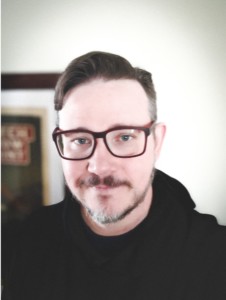
Then came the latest witchcraft boom, and a new wave of witchy podcasts. These podcasts reflected the directions that both witchcraft and podcasting were taking, catering to a wider audience by serving up more light-hearted entertainment value while still being intellectually and spiritually rigorous. Pam Grossman became the first witch podcast star when The Witch Wave launched in 2017. She’s since published her book—Waking the Witch: Reflections on Women, Magic, and Power—and consulted on the upcoming remake of The Craft. Nowadays, witchcraft can serve as a casual source for banter between hosts and guests, swapping in tarot and astrology for movies and television in the familiar gabfest podcast format. Chilling Adventures of Sabrina screenwriter Josh Conkel, for instance, describes the target audience for his new podcast, Hollywoo, as a “Venn Diagram of people who listen to The Witch Wave and people who listen to Las Culturistas.”
The evolution of witch podcasts also reflects the key values of modern witchcraft. For one, the understanding of witchery in a philosophical sense is much broader. “The notion of witchcraft and the identity of ‘witch’ is so elastic,” says Grossman. “I wanted to create a forum where I could explore what witches are, what magic is, and talk to people about how they might be expressing their magical side in myriad ways. I have plenty of guests who don’t call themselves witches and yet they use the iconography of the witch and magic in their work. I’m really interested in the notion of magic and creativity being part of the same spectrum.” This creates more room for exploration and even skepticism as hosts and guests grapple with what they believe and practice. “I consider myself really pragmatic and not especially religious, yet I believe in all these woo-woo things,” says Conkel. “I think a lot of them are preposterous but I’m still interested in them, and my beliefs—like everyone’s, I think—can change from day to day. My podcast gives me and my [typically similarly noncommittal] guests space to explore that.”
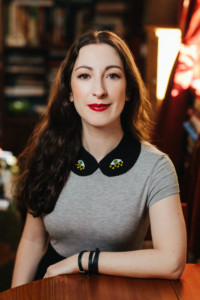
Witch podcasts are now also more likely to explicitly reflect the sociopolitical interests of today’s practitioners. “It’s no coincidence that the people typically interested in woo-woo things are women, young people, queer people, people of color,” says Conkel. Throughout history, people have been drawn to witchcraft as an alternative to the patriarchal, hierarchical, and racist mainstream religions and systems of power, and the latest rise of popular interest in witchcraft aligned with the 2016 election, which left many marginalized people feeling particularly powerless.“I think people are looking for alternative models of power and the witch is an empowering symbol of feminine transgression and rebellion and leadership,” says Grossman. “The witch honors feminine power, nature, and the body. People want spirituality and they want connection, but they don’t want it from institutions that make them feel ashamed or fearful or judged for having feminine power, for having desire, for honoring the sensual and the seasonal in a way that our major institutions do not value.”
The internet now gives these newfound witches and witch-curious a means to educate themselves and connect with one another, especially through social media. “People find witchcraft by getting into an astrology channel on YouTube, or downloading a tarot app, or seeing a post by a friend on Facebook that intrigues them,” says Hutcheson of New World Witchery. “They follow young witches on TikTok and then find Latinx brujas or Afro-Caribbean practitioners showing them how to connect with their ancestors and hex the patriarchy.” Conkel, who learned tarot and astrology through YouTube and online classes, agrees that the world of #witchtok has been hugely influential, along with the viral nature of witchy posts on Instagram and Twitter. “Astrology memes are really fun and silly, but they do teach people and get them interested in the study as well,” he says. But relying on social media alone has its risks. #Witchtok has had its fair share of controversy over credibility, and for every well-studied fourth-generation witch one might follow, “you can also get Wiki Witches and Snapchat Shamans who do surface-level skimming, then essentially launch their own ‘traditions,’ often appropriating or misrepresenting someone else’s magical practices,” says Hutcheson.
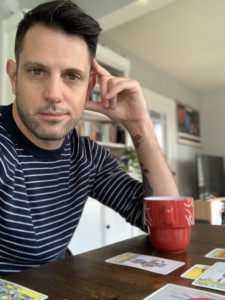
That’s where podcasts have a significant leg up as an educational tool. The barrier for entry in podcasting may only be slightly higher than setting up a Twitter account, but the effort of launching and then continuously producing a podcast is significantly more work than firing off a few tweets. New listeners can be more assured that a host has put in their research and is committed to the practice, especially once they’ve gained a following. The format also allows hosts to explore and investigate their topics more deeply compared to the brevity of social media posts that are notoriously lacking in room for nuance. “What podcasts offer are a chance for an in-depth conversation,” says Grossman. “When you’re talking about a topic like witchcraft, which so many people misunderstand, there’s a danger in trying to fit what someone’s belief is into a soundbite because it’s often the most sensationalist part and designed to catch attention.”
Along with depth, the breadth of information that can be presented on podcasts “allows for a whole variety of different scholars and practitioners of every identity to talk about their lived experiences and their perspective,” says Grossman. Podcasts have been key to recent examinations of the ethics of practicing witchcraft and how—or if—one can adapt different cultures’ beliefs and practices without being appropriative. “It also creates more of a sense of belonging,” says Grossman. “If it were only my perspective, someone might not relate and end up feeling like witchcraft is not for them, but bringing in a wide variety of guests means that listeners might not resonate with one episode but really connect with the next, and realize that there’s really no one true way to be a witch.”
The intimacy of podcasts also helps listeners trust them as a medium for exploring something as personal as spirituality. “When I listened to podcasts I loved before I had my own, I felt like the host was my friend and I really knew them,” says Conkel. “Now I’m experiencing that from the other side and, you know, I think my listeners do know me. This podcast is the most ‘me’ thing I’ve ever done. It’s much closer to who I am as a human than my Twitter or my Instagram, which are so funneled and so curated. There’s nothing like hearing a person’s voice and being alone with that as a listener. It engenders a sense of safety and closeness that I think is really genuine.”
If someone is uncomfortable with the idea of others knowing they’re interested in witchcraft, podcasts are a safe tool for exploring that privately.
That feeling of connection turns podcasts into a virtual coven of sorts. They’re not just where witches gather to learn new things, they’re also where witches find community. “Something we discovered early on was that people wanted to talk back to us,” says Hutcheson. “We had people sending in their lore and traditions, sharing their ideas and spells, and just wanting to be a part of the project we were putting together.” Identifying as part of a group empowers people to be more open about their beliefs and share them with others, aiding in the growth of interest in witchcraft and helping to break down the stigma that can still be associated with alternative spirituality. “I can’t tell you how many people have come out of the woodwork and have told me that they’ve been privately interested in witches or privately practicing witchcraft, but due to podcasts like mine and all the social media accounts that have exploded around witches, they feel more emboldened to practice out in the open,” says Grossman. “It’s really affirming to realize that something that is so meaningful to you has validity, and is important to millions of other people around the world.”
For those not so ready to strut out of the broom closet, though, the anonymity of podcasts is just as important. As trendy as witchcraft may be, there are still plenty of regions and cultures where being openly associated with it is looked down upon, if not outright dangerous, and in a society where it’s less and less common to practice religion at all, participating in a spiritual practice is something that can feel deeply private.
This becomes particularly clear when listening to a podcast like Hollywoo that interviews actors, comedians, and writers about their spiritual beliefs and experiences. Since the guests are known for something very secular and typically don’t identify as witches, these conversations are the only opportunity to get insight into their thoughts about god, the afterlife, death, magic, and endless other mysteries of being human. It can feel unnervingly personal, even intrusive, to listen in because these topics are considered so taboo. If someone is uncomfortable with the idea of others knowing they’re interested in witchcraft, podcasts are a safe tool for exploring that privately, and listening to witchy podcasts may be the primary way in which they engage with their spirituality. Who someone follows and what they like on social media can be seen by anyone, but what podcasts they listen to is between no one else but them and their phone.
Whether they’re empowering someone to practice witchcraft privately or openly, podcasts have been an important tool in the rise of modern witchcraft. They open minds, expand the understanding of what being a witch can and should be, and for thousands of listeners confirm that their curiosity is valid and they aren’t alone. “I often say that we witches aren’t recruiting,” says Grossman. “We don’t evangelize, and in some cases can be very secretive, but for those who seek us out, I hope my show is a big permission slip for anybody who isn’t quite sure where to start or if they belong.”

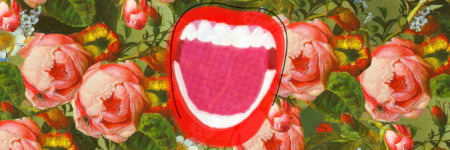
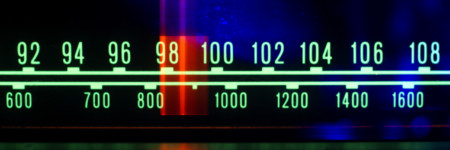

Comments